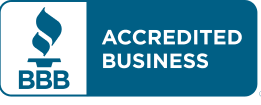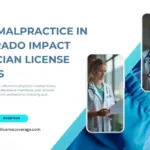Obtaining a medical license is a critical step in a physician’s journey, but it can also be a complex and challenging process. From understanding medical board requirements to avoiding common medical licensing errors, this blog delves into the obstacles physicians face and how to overcome them.
Understanding the Medical License Application Process
The medical license application process involves rigorous steps to ensure that physicians meet the necessary qualifications. However, navigating these steps can be daunting without a clear understanding of medical board requirements.
Common Medical Licensing Errors to Avoid
- Incomplete Documentation for Medical Licensing: Missing or incomplete documentation is one of the most frequent medical license mistakes. Double-check that all required documents, such as transcripts, proof of training, and work history, are included.
- Ignoring Medical License Eligibility Requirements: Failing to meet eligibility criteria, such as postgraduate training requirements or examination scores, can lead to application rejection.
- Neglecting Timelines for Medical License Approval: Many applicants underestimate the time required for license processing, leading to unnecessary delays.
- Missing the deadlines for submitting required documents: After paying the application fee and submitting the application, some states keep the application active for a certain amount of time, some states allow 1 month, some 3 months and some 6 months to complete the documents.
- Primary source verification of documents: Many states require primary source verification of documents including state licenses, which greatly varies from state to state. Initiating the verification process is the applicant’s responsibility and sometimes tracking these requests becomes confusing.
How to Avoid Medical License Delays
- Start Early: Begin gathering necessary documents and fulfilling requirements before submitting the application.
- Stay Organized: Use checklists to track completed steps in the application process.
- Communicate Proactively: Reach out to the medical board with any questions about unclear requirements.
Addressing Problems in Medicine: Licensing Challenges
Licensing challenges reflect broader issues in the medical field. Let’s explore the biggest challenges facing healthcare professionals today and how they intersect with licensing hurdles.
Family Medicine Practices Problems
Family medicine practitioners often face unique challenges in the medical field, such as meeting state-specific licensing requirements while balancing patient care. These demands increase the risk of overlooking critical steps in the application process.
The Biggest Challenge Facing Healthcare Professionals Today
Physicians across specialties struggle to balance administrative burdens, including licensing, with their primary focus—providing quality care. This imbalance can lead to stress and errors.
Avoiding Licensing Application Rejection; Rejections often stem from:
- Inaccurate Information: Ensure all personal and professional details are accurate and up-to-date.
- Failure to Disclose: Omitting information about past disciplinary actions or malpractice claims can lead to disqualification.
Key Questions Answered
- What Are the Most Common Medical Licensing Mistakes?
- Submitting incomplete applications
- Missing deadlines
- Failing to provide accurate documentation
- How Can I Avoid Delays in the Medical Licensing Process?
- Begin the process early and stay proactive.
- Use a professional licensing service if necessary.
- Maintain clear communication with the medical board.
- Why Do Medical License Applications Get Rejected?
- Non-compliance with eligibility requirements
- Incomplete or inaccurate submissions
- Failure to respond to board inquiries promptly
- How Long Does It Take to Get a Medical License?
Timelines for medical license approval vary by state but typically range from 60 to 120 days. Delays can occur if documents are missing or additional verifications are needed.
- What Documents Are Required for a Medical License Application?
- Proof of medical education and training
- Examination scores (e.g., USMLE, COMLEX-USA)
- Work history and references
- Background check and fingerprinting
Strategies to Overcome Challenges in the Medical Field
To address unique problems in medicine, physicians must prioritize both professional development and administrative efficiency.
Simplifying the Medical License Application Process
- Use online tools or professional services to streamline applications.
- Stay informed about changes in medical board requirements.
- Develop a system for tracking deadlines and submissions.
Collaborating with Licensing Experts
Engaging with experts who specialize in medical licensing can save time and reduce stress. These professionals offer insights into avoiding common medical licensing errors and managing the process efficiently. After completing one licensing process, obtaining your next license will be easier than the first one with the same company.
Conclusion
The medical license application process is a significant milestone in a physician’s career. By understanding the requirements, avoiding common mistakes, and staying organized, you can navigate this process successfully. Overcoming these challenges not only ensures timely licensure but also helps you focus on what truly matters—delivering quality care to your patients.








